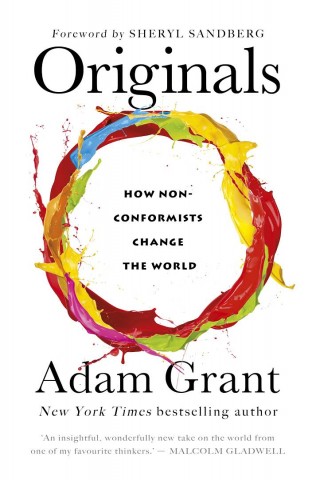Some advice from Grant's (2016) widely read "Originals: How Non-conformists Move the World" – at least those that may apply for researchers:
Write a lot. Not because if you don't publish you will perish, but because it makes your work better. "It is widely assumed that there's a tradeoff between quality and quantity – if you want to do better work, you have to do less of it – but this turns out to be false. In fact, when it comes to idea generation, quantity is the most predictable path to quality." (p. 37)
Diversify & move. "Just as scientists, entrepreneurs, and investors often discourse novel ideas through broadening their knowledge to include the arts, we can likewise gain breadth by widening our cultural repertoires. Research on highly creative adults shows that they tended to move to new cities much more frequently than their peers in childhood, which gave them exposure to different cultures and values, and encouraged flexibility and adaptability." (p. 48) Note: the author says this does not mean travel or short trips, but living somewhere else.
Be open about limitations. When "you are pitching a novel idea or speaking up with a suggestion for change, your audience is likely to be skeptical… it's actually more effective to adopt Griscom's form of powerless communication by accentuating the flaws in your idea." (p. 69)
See the idea from the perspective of others. "You've spent hours, days, weeks, months, or maybe even years thinking about the idea. You've contemplated the problem, formulated the solution, and rehearsed the vision. You know the lyrics and the melody of your own idea by heart. By that point, it's no longer possible to imagine what it sounds like to an audience that's listening to it for the first time. This explains why we often undercommunicate our ideas. They're already so familiar to us that we underestimate how much exposure an audience needs to comprehend and buy into them." (p. 76)
Don't be first? "In work and in life, we are constantly taught that acting early is the key to success… There are, of course, clear advantages to speed: we can be sure to finish what we start and beat competitors to market. But, surprisingly, as I've studied originals, I've learned that the advantages of acting quickly and being first are often outweighed by the disadvantages." (p. 93)
Hold the punch line? "In a popular TED talk and book, Simon Sinek argues that if we want to inspire people, we should start with why. If we communicate the vision behind our ideas, the purpose guiding our products, people will flock to us. This is excellent advice – unless you are doing something original that challenges the status quo. When people championing moral change explain their why, it runs the risk of clashing with deep-seated convictions." (p. 124).
Procrastinate? "When you're generating new ideas, deliberately stop when your progress is incomplete. By taking a break in the middle of your brainstorming or writing process, you're more likely to engage in divergent thinking and give ideas time to incubate." (p. 246)

